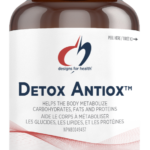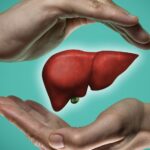Detoxing you body doesn’t just mean and is so much more than:
- Jumping on a juice cleanse
- Sipping skinny teas daily
- Or going ‘dry’ for a month
When we detoxify our body, every organ is working to eliminate foreign waste, heavy metals, toxins and bad gut microbes (yeast, fungus, mold, parasites, ect.) from our body.
Why is proper detoxification important?
- Can directly impact your ability to lose/store body fat.
- Supports sustainable weight loss.
- Improves energy, mood and mental clarity.
- Improves skin conditions and sleep quality.
- Strengthens the immune system and prevents illness.
- Improves digestion, nutrient absorption and reduces cravings.
Your overall health and wellbeing depends on how well you can eliminate toxins from the body. The less toxins you hold onto, the healthier you will be and the easier your body will work for you.
Most chemicals undergo a two-step detoxification process in the liver. whether they are external substances from the environment, or by-products of our own body chemistry.
The first step is often transformation to an even more toxic compound, before the second step then creates a neutral, or less toxic chemical.
Phase 1 is all about transformation, and uses a group of enzymes (cytochrome P450) to do its work. These enzymes protect cells from damage by:
- Transforming volatile toxins into smaller substances meant for further detox
- Making fat-soluble (lipophilic) toxins water-soluble (hydrophilic) to enter Phase 2
Phase 1 uses the biochemical reactions of oxidation, reduction, and hydrolysis to transform compounds into smaller molecules. In the process, it creates less stable and potentially more harmful metabolites, such as free radicals. This is all well and good as long as Phase 2 is functional and ready to handle these metabolites.
Phase 2 continues the transformation work with conjugation, which links unstable Phase 1 metabolites with safer water-soluble components that can be eliminated. It uses six different conjugation pathways: glucuronidation, acetylation, esterification, amino acid conjugation, sulfation, and glutathione conjugation.
Phase 2 requires a lot of energy which comes from ATP that your mitochondria make, and the nutrients come from food. Each conjugation pathway has a specific set of nutrient needs. For example:
- Glucuronidation needs carotenoids, magnesium, omega 3 and 6 fatty acids, probiotics, and flavonoids like quercetin
- Glutathione conjugation requires the amino acids glycine, cysteine, and methionine, and the minerals selenium and zinc
- Sulfation uses sulfur-rich foods and amino acids such as eggs, garlic, and taurine
- Methylation requires magnesium, B vitamins, choline, and methionine
Many people today struggle with a sluggish Phase 2 detoxification process.
You can activate Phase 1 simply with your morning coffee, but if you have a sluggish Phase 2, you could suffer the results later. This may explain your insomnia, brain fog, PMS, or fatigue.






